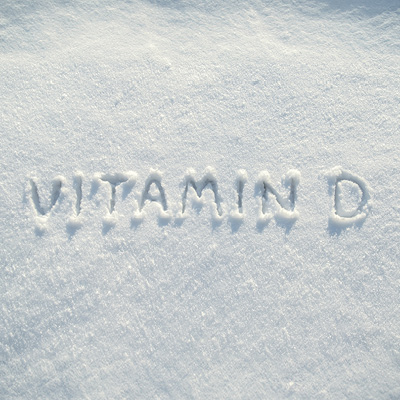Four Easy Ways to Avoid Vitamin D Deficiency This Winter
Posted February 01, 2024 by H. Kelley Riley, M.D., MBA, Chief Medical Officer

Vitamin D deficiency is a common concern among people who live in northern climates. Shorter days with less sunlight during the cloudy months, paired with more time indoors to escape the cold, can make it difficult to get adequate levels of vitamin D.
Some vitamins can only be obtained through dietary adjustments. However, vitamin D is often called the sunshine vitamin because the body is able to produce it when exposed to the sun’s rays.
Vitamin D is essential for calcium absorption in the body and strong, healthy bones. It also supports muscle function, brain cell activity and the immune system. In fact, research has shown long-term vitamin D deficiency can lead to health problems, including cognitive decline, depression-like symptoms, osteoporosis, multiple sclerosis and autoimmune disorders.
Luckily for us Northeast Ohioans, sunshine isn’t the only way for those 70 and younger to get their daily recommended 600 International Units (IU) of vitamin D. Individuals over 70 years of age need even more vitamin D—the daily recommendation for these seniors is 800 IUs. SummaCare offers four ways to get more of this sunshine vitamin to avoid vitamin D deficiency in the dead of winter.
Add Foods Rich in Vitamin D to Your Diet
There are several foods that naturally are good sources of vitamin D. Fatty fish like wild salmon, tuna and trout have high levels of vitamin D. As an added bonus, they also have heart-healthy omega-3 fatty acids.Other foods that are good sources of vitamin D include:
- Egg yolks
- Beef liver
- Some mushrooms
- Certain cheeses
Switch to Fortified Milk and Cereal
Some manufacturers fortify their products with vitamin D to make consuming this vitamin easier. Orange juice, yogurt and milk products (including cow’s milk and soy milk) are good examples of products that offer a boost of vitamin D. The good news here is consuming vitamin D with calcium is a win-win because vitamin D helps the body absorb calcium.
In addition, some cereal brands fortify their products with various vitamins and minerals including vitamin D. Just be sure to check the nutrition label to make sure it has that extra amount of vitamin D you need.
Take Vitamin D Supplements
If you’re struggling to get enough vitamin D from your diet alone, supplements can help. Talk to your doctor first, though. Supplements come in a variety of forms and concentrations, and your primary care provider (PCP) can help you determine which is right for you.
Your age, whether you have a preexisting condition, or take prescription medication can affect how much vitamin D your body needs. Achieving the proper balance is very important because high levels of vitamin D in the body can be toxic.
Get Outdoors More
Try some outdoor fun this winter, whether it’s skiing, building a snowman or hiking in the winter wonderlands. You’ll not only get a boost of vitamin D, but also a dose of fresh air, which research shows can improve your mood. It doesn’t take much. About 20 to 30 minutes of sunlight a few times a week will give your body sufficient vitamin D.Even better, head south to warmer climates for a winter vacation, if your budget allows. After absorbing more of the sun’s rays, you’ll come back refreshed and replenished.
But, don’t worry if outdoor winter fun and a getaway are not in the cards for you. There are other ways to get adequate levels of vitamin D when winter comes around every year.
